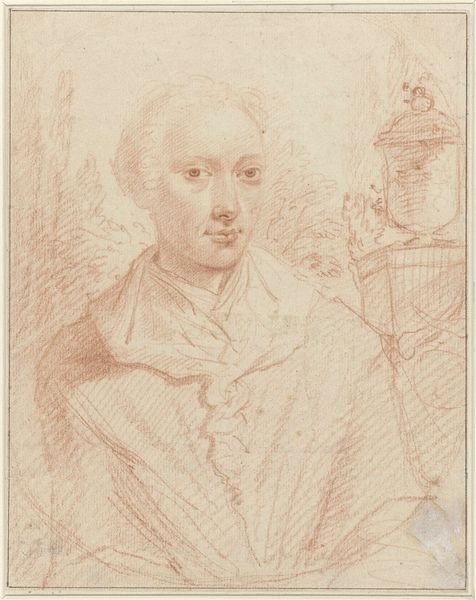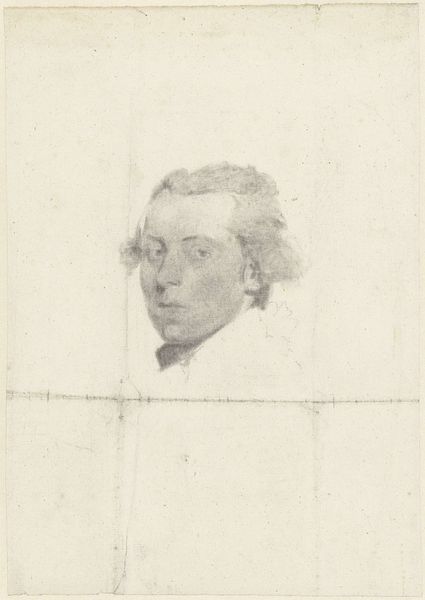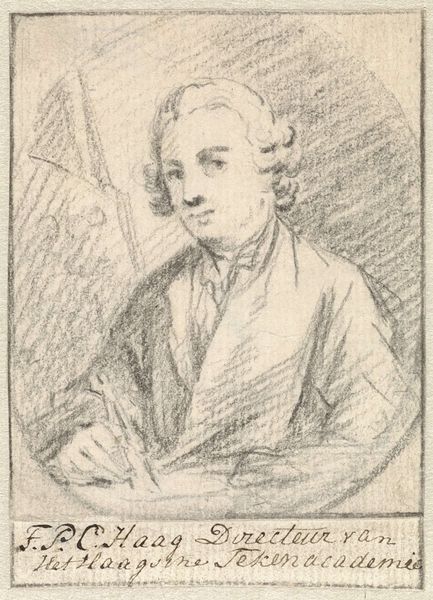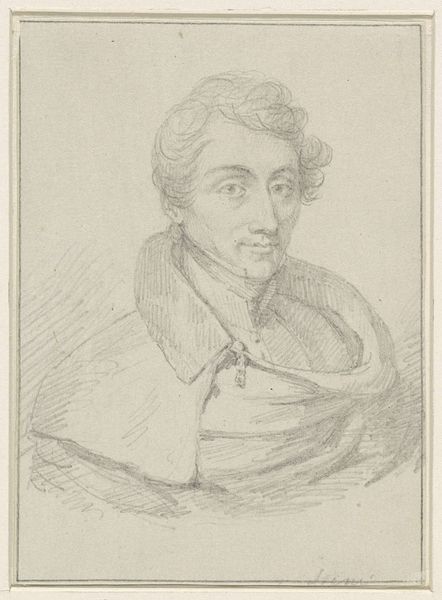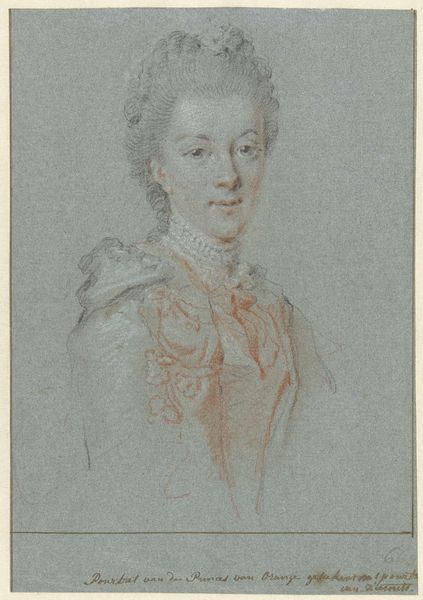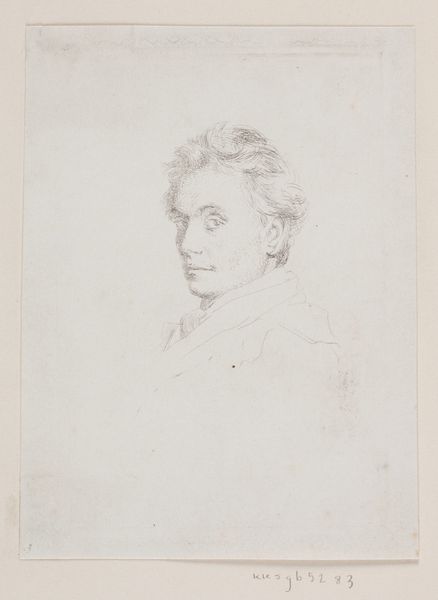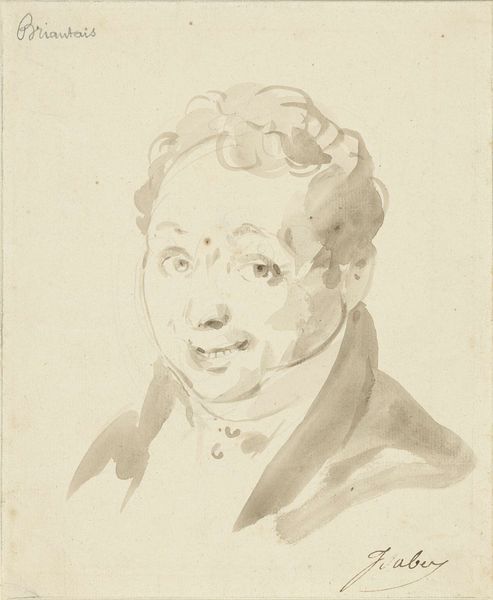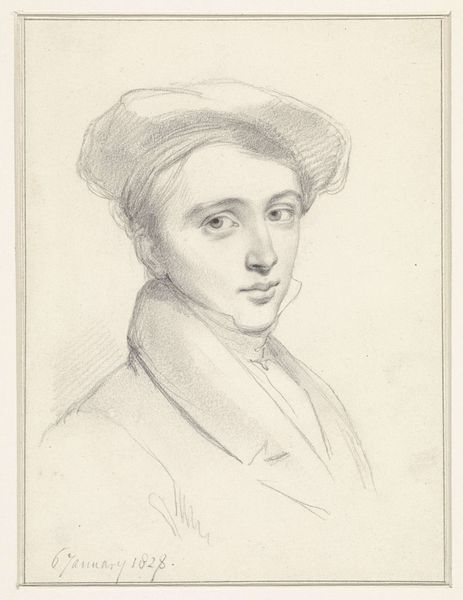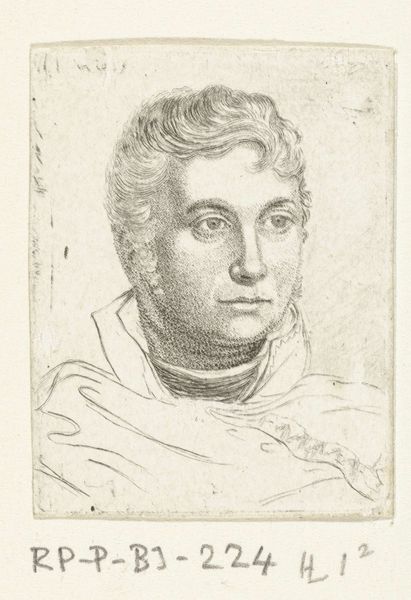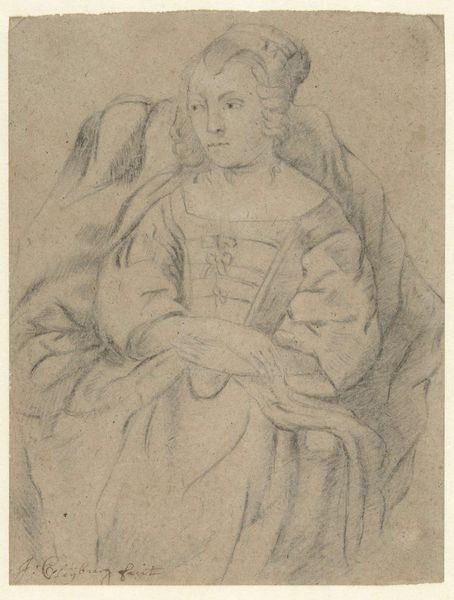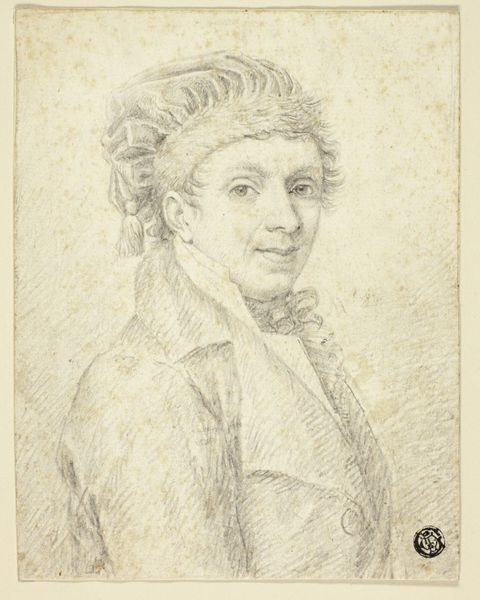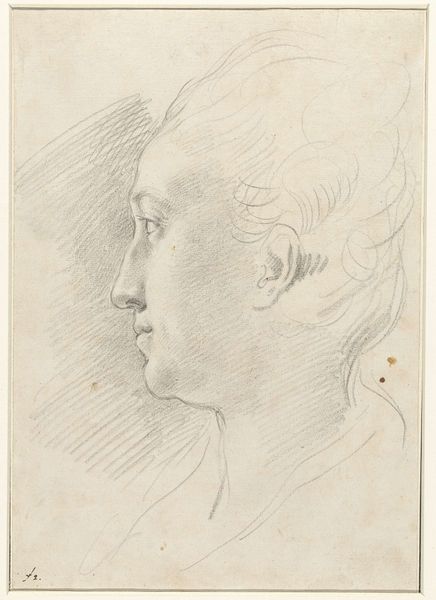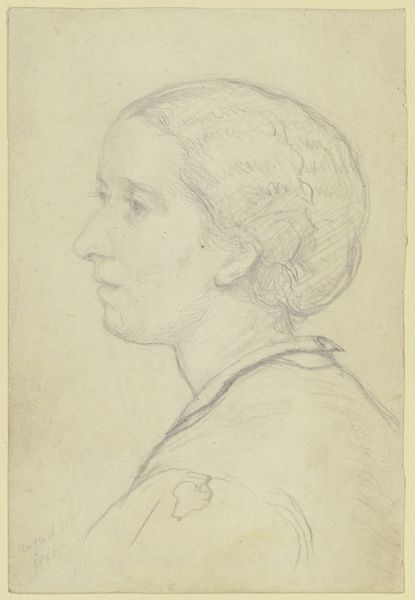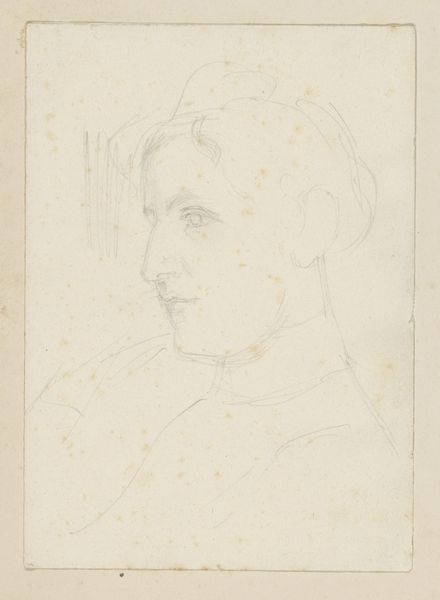
drawing, pencil
#
portrait
#
pencil drawn
#
drawing
#
pencil drawing
#
pencil
#
realism
#
rococo
Dimensions: height 100 mm, width 83 mm
Copyright: Rijks Museum: Open Domain
Editor: Here we have "Portrait of a Woman" by Pieter Tanjé, likely made sometime between 1716 and 1761. It's a pencil drawing and the delicate lines give it such a gentle, almost melancholic feel. What do you see in this piece, particularly in its historical context? Curator: What I immediately notice is the idealization typical of the Rococo period mingling with a nascent realism. It's a dance between what was expected of portraiture—a presentation of status and beauty—and a genuine attempt to capture the individual. Her gaze, for instance, is direct but also slightly detached. What stories do you think her eyes tell? Editor: That's interesting! I hadn’t considered the potential realism fighting against the idealization. I see a hint of weariness, maybe even a quiet defiance. Could her gaze be interpreted as a subtle form of agency in a society that largely confined women? Curator: Precisely! Think of the symbols and implied narratives in how women were presented during this era. The controlled curls, the soft, diffused lighting… these are elements meant to convey refinement and virtue. But within that framework, Tanjé seems to allow for a glimpse of something more complex, a consciousness that transcends mere decoration. Does the use of pencil as opposed to paint impact your perception of the work? Editor: I think the pencil emphasizes the immediacy and intimacy, as though the artist is giving us a direct, unfiltered view. It’s like a fleeting moment captured on paper. I learned so much about how portraits encode so much information about a person. Curator: And how a culture chooses to remember them. These images are vessels of memory, continually reshaped by the present.
Comments
No comments
Be the first to comment and join the conversation on the ultimate creative platform.
